How housing corporations fail the new underclass
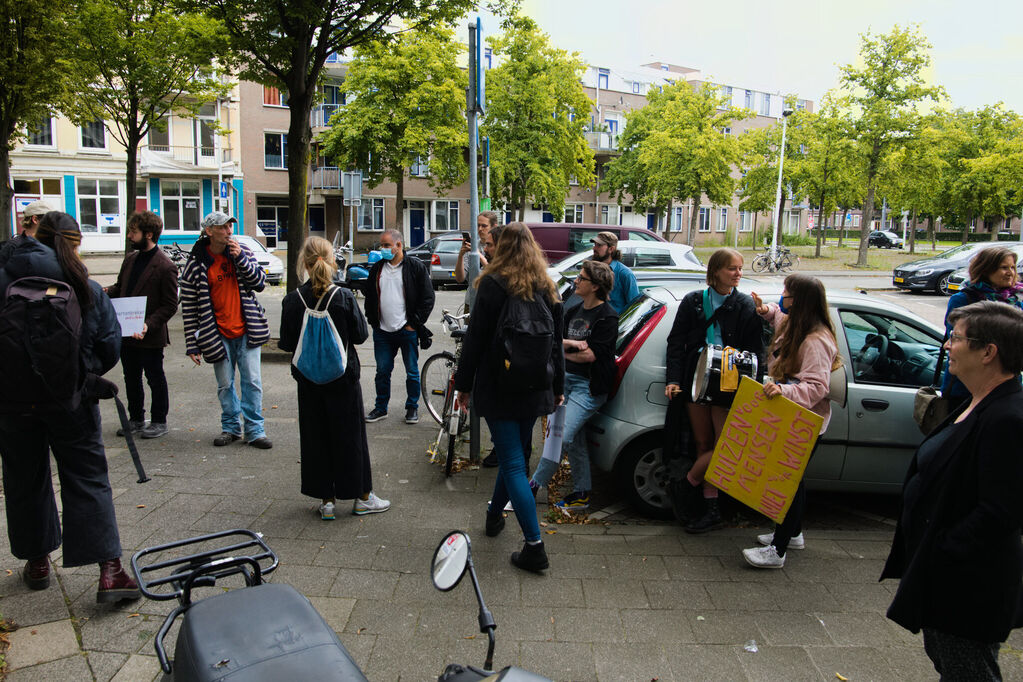
Alongside about twenty people participated in a local protest against the eviction of the young precarious worker Pepijn by the Rotterdam housing corporation Havensteder. Pepijn’s case is exemplary of the precarization of housing after more than a decade of (the neoliberal Dutch) VVD government.
Like many people today, Pepijn could only get a rental apartment through a temporary lease, in a house that Havensteder itself deemed “uninhabitable” and eventually sold to a commercial real estate developer. After that deal was made, Pepijn received an eviction notice, although his apartment will not be immediately renovated by the new owner. Instead, Havensteder worked with the Dutch “anti-squat” temporary housing real estate giant Ad Hoc. Instead of letting Pepijn live there as long as the apartment is not renovated, another temporary tenant will be given the space, only to be evicted after perhaps a few weeks.
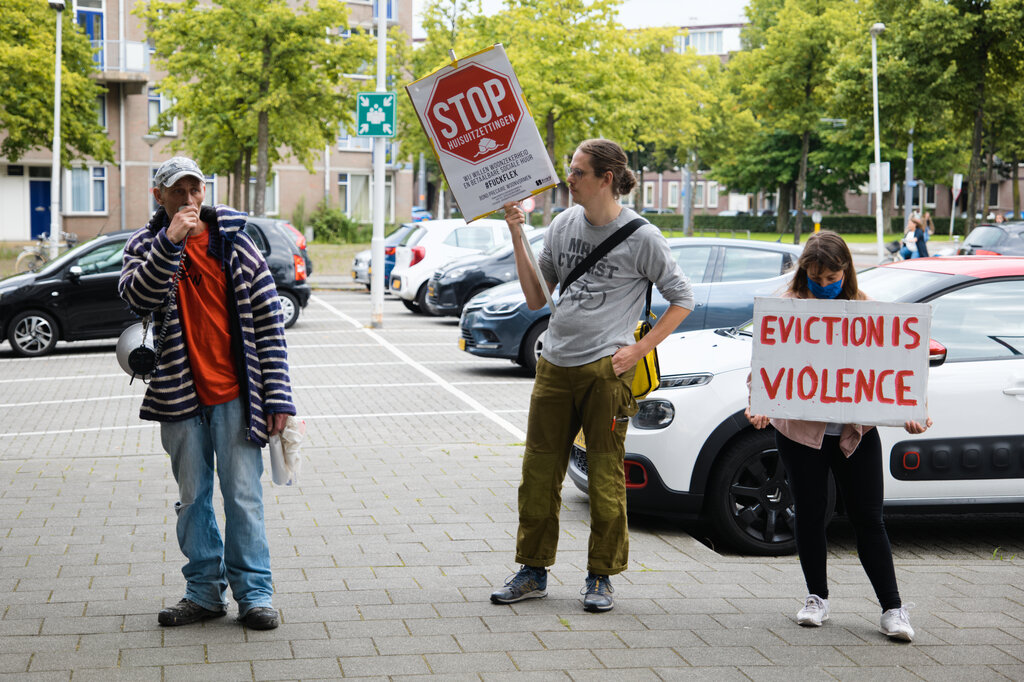
The protest was organized by the Bond Precaire Woonvormen (“Federation Precarious Forms of Housing”) and supported by a number of other local groups, including the anti-gentrification activists of Recht op de stad (“Right to the City”), Cultural Workers Unite – Rotterdam and the Rotterdam chapter of the Dutch Socialist Party (SP Rotterdam). As we reported earlier, the aim was to hand over a list of demands to Havensteder.
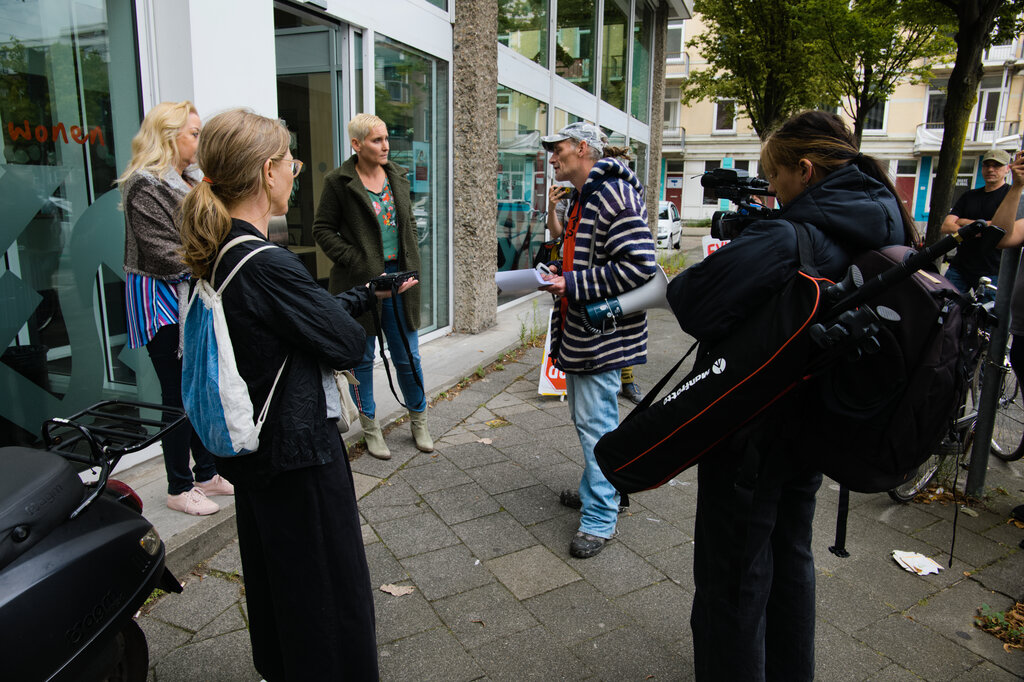
Unlike previous demonstrations in front of Rotterdam housing corporations, such as Vestia (the owners and demolishers of the Tweebosbuurt in Rotterdam-South), where the corporations chose to ignore the protesters and kept their doors and windows shut, Havensteder apparently saw the need to do something for its public image of a more socially engaged housing corporation. After the demonstration’s speaker rang the doorbell, two representatives came out and took the time to engage in a discussion with the protesters, who – in the meantime – had been joined by Pepijn himself.
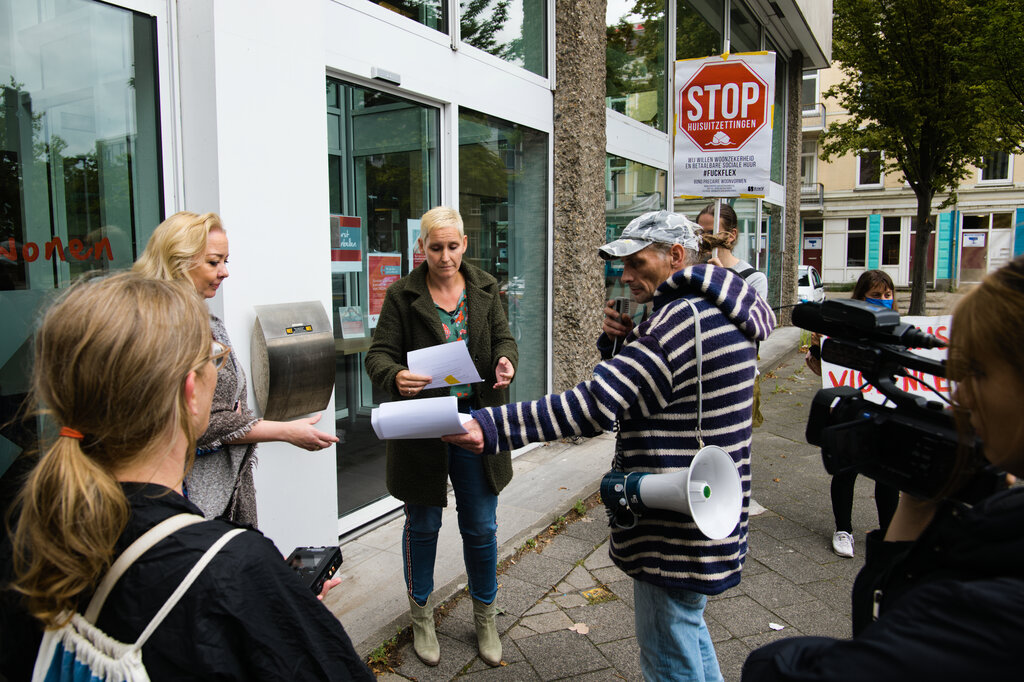
Havensteder’s defense was predictable: it acknowledges the housing emergency in Rotterdam, but sees nothing wrong with the eviction of Pepijn and other temporary tenants. After all, it was all according to the letter of the rental contracts and Dutch law. The representatives literally said that Havensteder sees it as its task to take care of its tenants with permanent rental contracts, but not of tenants with temporary contracts.
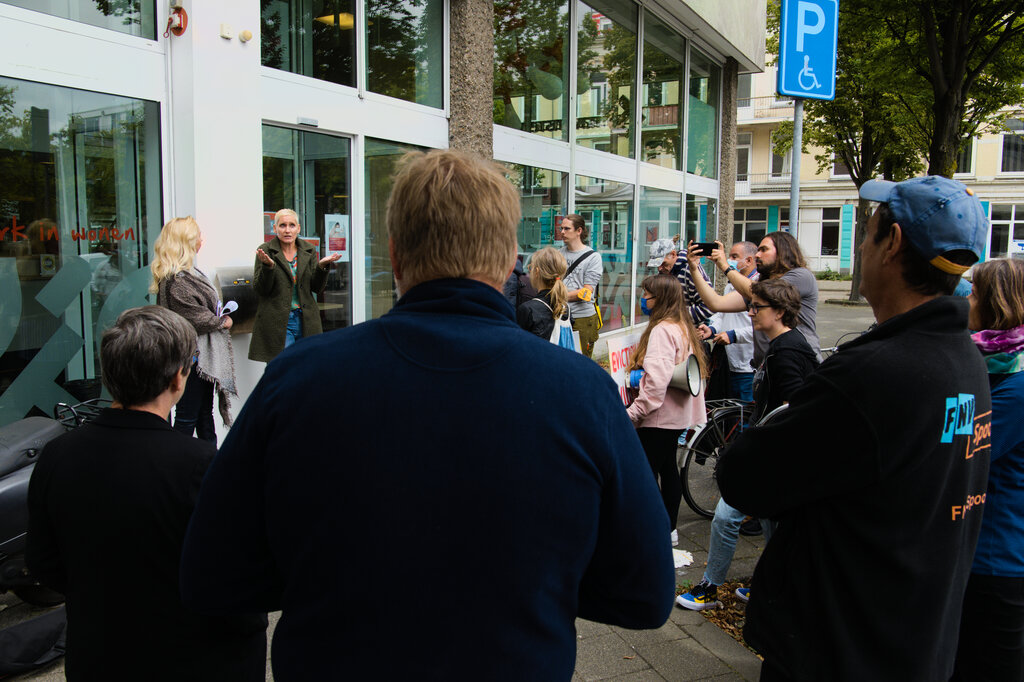
It was disappointing but not surprising to see how a social housing corporation like Havensteder, founded a century ago to fight the working class housing emergency and still operating as a non-profit organization today, pretends to be ignorant, denying how unethical it is to participate in the new two-class system, with temporary and anti-squat tenants as a new precarious underclass who factually have no rights as tenants. The Havensteder representative even literally said that the corporation “outsources” temporary rentals to companies like Ad Hoc – companies that in our eyes should have no right to exist. Moreover, the Havensteder spokespeople did not see it as a problem that their employer is acting like a commercial real estate party by selling social rental apartments to private developers without caring whether that real estate will remain social rental apartments.
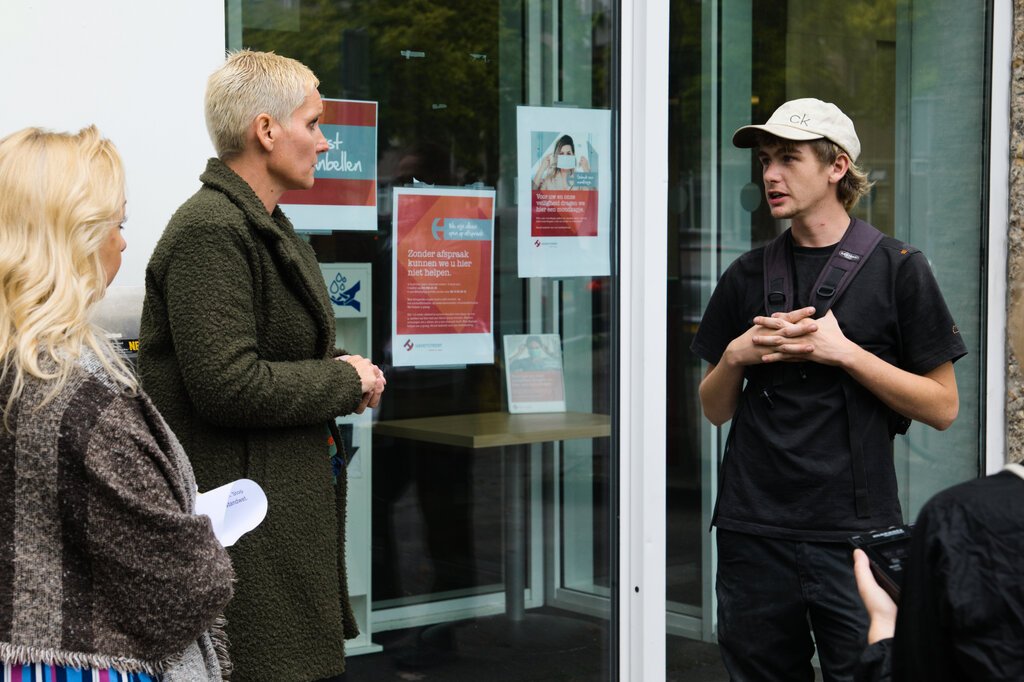
The case of Pepijn, who works in the events industry, illustrates how the “gig economy” not only entails insecure forms of labor, but also makes life as such insecure – and how the traditional institutions of the welfare state, even where they have not yet been completely dismantled, let down the new underclass.
Florian

